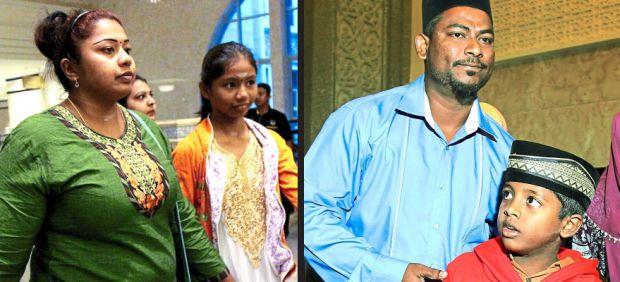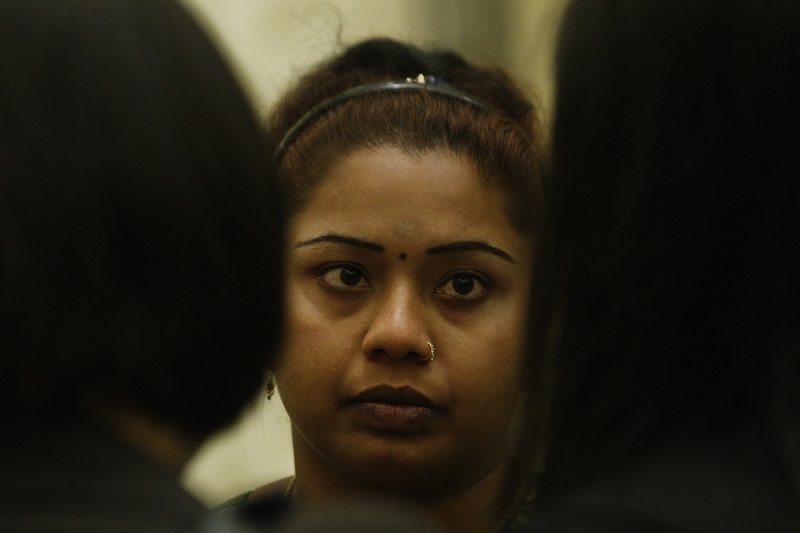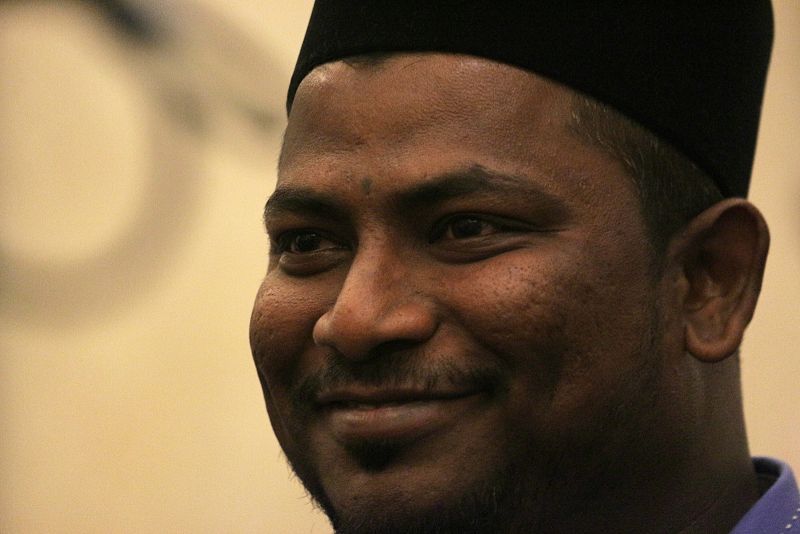In Awarding The Father Custody Of His Son, Did The Federal Court Condone His Wrongdoing?
IMHO, it seems the Federal Court chose the easy way out for themselves.
On 11 February, the Federal Court's ruling in the custody row between Muslim convert Izwan Abdullah and his Hindu ex-wife S. Deepa ended with each getting one child. Abdullah got his 8-year-old son while Deepa was given custody of her 11-year-old daughter.
Court of Appeal president Justice Md Raus Sharif, who chaired the five-man panel, made this order after interviewing the girl Nurul Nabila and her brother Nabil for 40 minutes in chambers.
“The boy said he wanted to be with his father and the girl wanted to be with her mother. Nabil is schooling in Kuala Pilah, Negri Sembilan, while the girl is schooling at an international school in Johor Baru, Johor, and it appears both of them are settled where they are. Our view under Section 88(3) of the Law Reform (Marriage & Divorce) Act 1976 is that the court shall not disturb the life of the child,” Justice Md Raus ruled in a unanimous decision yesterday.
He said the court was setting aside the orders of the High Court and Court of Appeal with regard to custody. The lower courts had given custody of both children to Deepa.
The five-man bench chaired by Raus Sharif also ruled that both parents could visit their children at the home of Deepa's mother in Jelebu Negri Sembilan once in two months between 10 am to 3 pm
They also consented to reasonable access via phone without limitation, subject to the children’s availability. No overnight stay was allowed.
thestar.com.myGoing separate ways: Deepa with her daughter Nurul Nabila (Sharmila) and Izwan with his son Nabil (Mitran) leaving the Federal Court after the decision on the custody of their children.
Image via MOHD SAHAR MISNI/The StarHowever, in ruling so, the Federal Court, it seems, has deliberately decided to award the father who broke the law by snatching the son from the lawful custody of Deepa back on 9 April 2014. In other words, the Federal Court ruling gives the impression that a person, under the guise of religion, could abuse the legal system and instead of facing rightful punishment, would actually benefit from it.
And no, this is not me who is saying so. Even the Retired Federal Court judge Gopal Sri Ram believes that Izwan Abdullah (N. Viran) broke the law but benefitted when the Federal Court gave him custody of his son.
Speaking to the Malaysian Insider, Sri Ram said, "Izwan was also acting on a Shariah court custody order when that religious court had no jurisdiction in a case where one party remained non-Muslim. He did not come to court with clean hands to seek justice."
"I am not satisfied with the decision as initially the High Court and Court of Appeal ruled in my favour and I had hoped of getting my children. But I remain separated from my son. I hope Malaysia and its people would change. Do not let single mothers like me to have this question unanswered. I faced a lot of difficulties, losing my son, my husband. I do not have money and there was no assistance. It is not fair as now I am left with my daughter and my son is separated from me. This is not fair. Malaysia is being unfair (to me). Do not let this episode recur. Let my case be the last in Malaysia. Malaysia please change," a sobbing Deepa was quoted by Malaysiakini as saying.
Moreover, the Federal Court completely overlooked the fact that after the High Court ordered the police to assist Deepa in getting back her son who was abducted by his father, IGP Khalid Abu Bakar, a public servant, had declined to follow the High Court, saying he could not comply as there were two conflicting custody orders.
But that isn't the case now, is it?
The Shariah court has no jurisdiction over a dispute in which one party was non-Muslim. And Retired Federal Court judge Sri Ram agrees that the IGP should follow civil court orders, not the Shariah court.
As Melissa Sasidaran, the legal and campaign coordinator for Lawyers for Liberty (LFL), wrote for Malaysiakini, the Federal Court should have brought IGP Khalid Abu Bakar to task for failing to enforce the High Court order in recovering custody of the child who was forcibly taken away.
Even the President of the Association of Women Lawyers, Goh Siu Lin said the bench clearly held that the Shariah Court only has jurisdiction in marriage and divorce when both parties were Muslims, adding, "So it is wrong from the beginning for the religious court to issue a custody order which the High Court revoked later."
Basically, it so appears that the Federal Court has condoned the father's abduction of his son and the refusal of the IGP to act on the order of the High Court.
The ruling also did not resolve the issue of unilateral conversion, an unconstitutional act committed by the father who had converted the children to Islam without their Hindu mother's knowledge or consent in 2012 and used the Syariah Court to get their custody
Expressing its dissatisfaction against the decision, the Women's Aid Organisation (WAO) warned that this verdict granting S. Deepa’s Muslim convert ex-husband custodial right over their son would encourage more unilateral conversion in the future.
“The Court’s ruling thus fails to fully protect the rights of non-converting spouses and their children, and contravenes the Federal Constitution and its guarantee of equality,” the group’s president Carol Chin added.
That said, however, the Federal Court must be praised for ruling that it is the civil court had the power to hear and determine the issue while the Syariah Court had no jurisdiction even if one spouse had converted to Islam, adding that the civil court was the proper forum to decide on the dissolution of marriages in such cases
Although, Deepa was awarded the custody of her daughter, how is she, as a Hindu mother, suppose to raise her daughter, a Muslim convert? Speaking to The Star Online, family law practitioner Honey Tan said that the mother was in danger of being arrested if she took her daughter to a temple, allowed her to take part in religious ceremonies or provided her with religious instructions.
“The Federal Court could have attached other orders under Section 89 of the Law Reform Act when it gave Deepa custody of her daughter.”
Tan said Part II of the Control And Restriction (The Propagation Of Non-Islamic Religions Amongst Muslims) (Negri Sembilan) Enactment 1991 listed offences which could prove to be a problem.
Clause 5(1) talks about subjecting a Muslim under the age of 18 years to influences of a non-Islamic religion.
And an offence is committed if such a child:
> receives instruction in a non-Islamic religion;
> takes part in any ceremony, act of worship, or religious activity of a non-Islamic religion; or
> takes part in any activity which is sponsored or organised by or is for the benefit or interest of a non-Islamic religion or any body or institution associated with a non-Islamic religion.
“This is not a syariah enactment but a state enactment. This means Deepa can be prosecuted,” added Tan.



